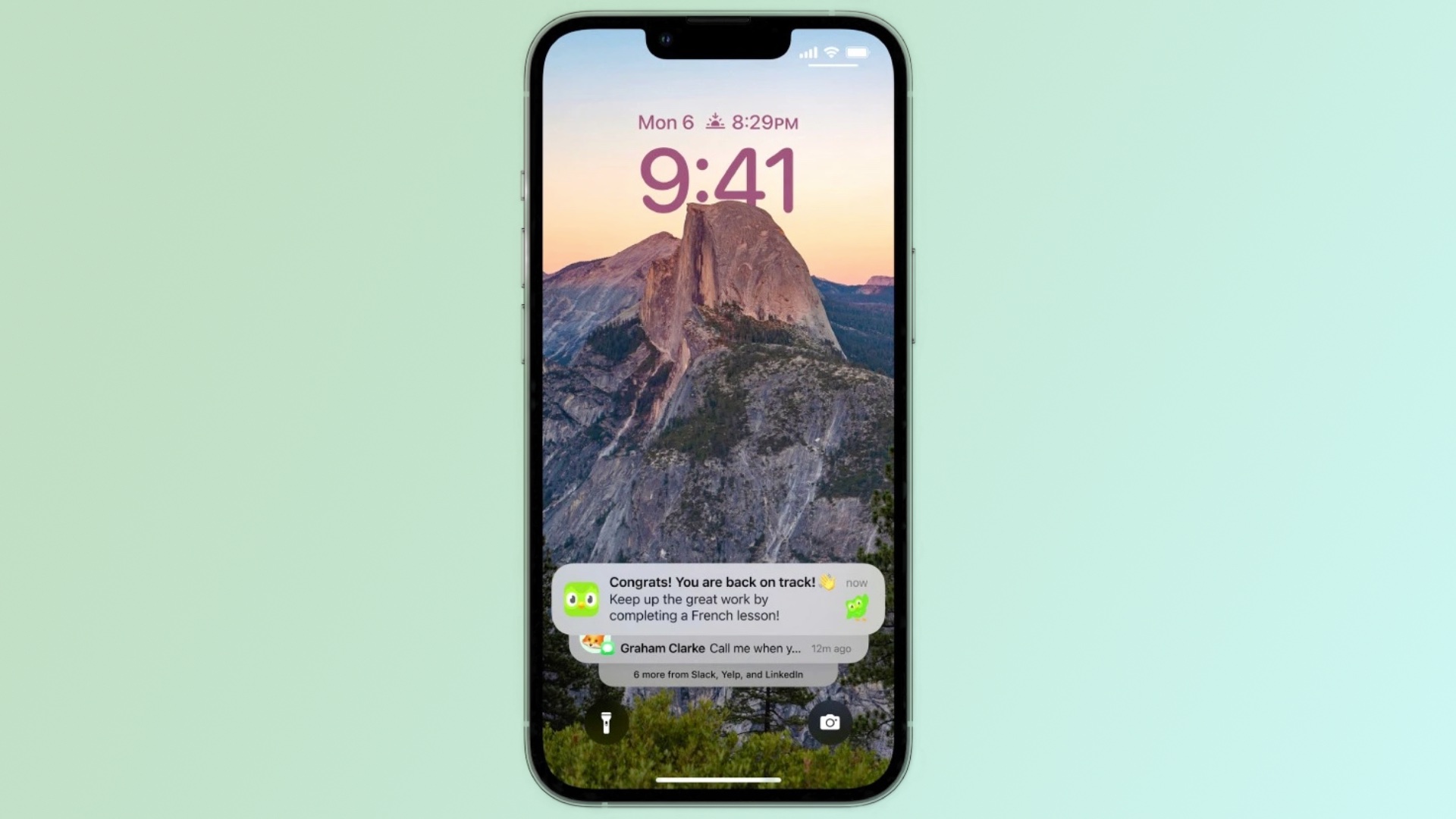Apple admits governments can spy on your iPhone's push notifications — and they already are
All of your iPhone's notifications are routed through Apple, and governments know it.

Push notifications are both wonderful and the bane of many of our existences, and keeping them under control can be a full-time job in itself. But while iPhone notification overload is very real, that isn't the biggest issue that you need to consider the next time you tell an app that yes, sure, it can send you push notifications whenever it likes — because those notifications can be used to spy on you.
It's something that has been pondered before, but now we know it for sure after Apple confirmed as much. It also confirmed that it was the subject of a gagging order from the federal government that prevented it from sharing information about any requests relating to push notification data, but that order has now lapsed after a letter to the Department of Justice brought the situation to the fore.
Now, users of iPhones and indeed other devices that receive similar notifications — not just Macs, iPads, and Apple Watches but Android devices also — might want to think twice about granting that notification permission.
'A unique insight'
Apple's newfound openness comes after Senator Ron Wyden wrote a letter to the Department of Justice claiming that foreign officials had examined data from both Apple and Google. Few details about the letter have been shared, but Reuters reports that it's push notifications that are the matter of concern.
The report rightly notes that Apple and other companies are the ones that route push notifications to users after they are triggered by an app. Those triggers can come from an external service, like Facebook for example, but the notification itself is routed through Apple's servers before it reaches your shiny new iPhone 15. That means that notification data provides "a unique insight" into people, their interests, and what they use their iPhones for in general. And that information is something that governments would love to get their hands on.
Senator Wyden has asked that the Department of Justice go ahead and "repeal or modify any policies" that prevent companies like Apple from saying that these kinds of notifications are being monitored.
That step might not matter though, with Apple saying that while it was under an order from the federal government that prevented it from sharing any information, that's all changed thanks to this letter.
iMore offers spot-on advice and guidance from our team of experts, with decades of Apple device experience to lean on. Learn more with iMore!
"In this case, the federal government prohibited us from sharing any information," Apple reportedly said in a statement. "Now that this method has become public we are updating our transparency reporting to detail these kinds of requests."
The secret's out
As I've said for years, the best iPhone is a secure one and that's something Apple appears to agree with. But it took a letter from a senator to be able to tell anyone about these notification data requests. Wyden hasn't said what prompted that letter beyond saying that it was the result of a "tip" and his staff has so far declined to say where that tip came from. However, "a source familiar with the matter confirmed that both foreign and U.S. government agencies have been asking Apple and Google for metadata related to push notifications to, for example, help tie anonymous users of messaging apps to specific Apple or Google accounts," the report adds.
Most of us only put a small amount of thought into whether or not we grant our apps the ability to send us push notifications, but that might be a stance that changes from here on out. It still isn't clear exactly how much information can be gleaned from push notification data, but the fact governments are asking for it at all suggests it's a non-zero amount.
More from iMore

Oliver Haslam has written about Apple and the wider technology business for more than a decade with bylines on How-To Geek, PC Mag, iDownloadBlog, and many more. He has also been published in print for Macworld, including cover stories. At iMore, Oliver is involved in daily news coverage and, not being short of opinions, has been known to 'explain' those thoughts in more detail, too.
Having grown up using PCs and spending far too much money on graphics card and flashy RAM, Oliver switched to the Mac with a G5 iMac and hasn't looked back. Since then he's seen the growth of the smartphone world, backed by iPhone, and new product categories come and go. Current expertise includes iOS, macOS, streaming services, and pretty much anything that has a battery or plugs into a wall. Oliver also covers mobile gaming for iMore, with Apple Arcade a particular focus. He's been gaming since the Atari 2600 days and still struggles to comprehend the fact he can play console quality titles on his pocket computer.
